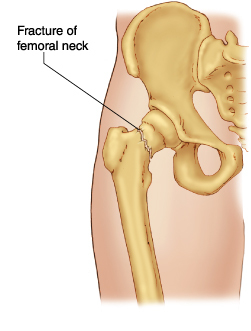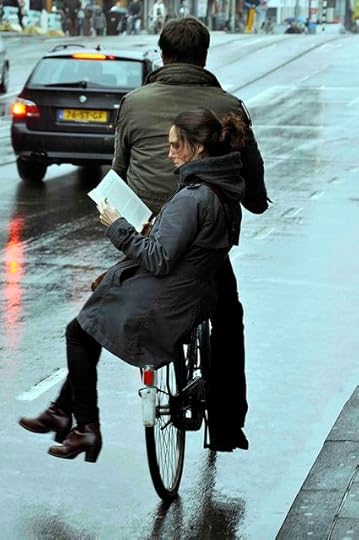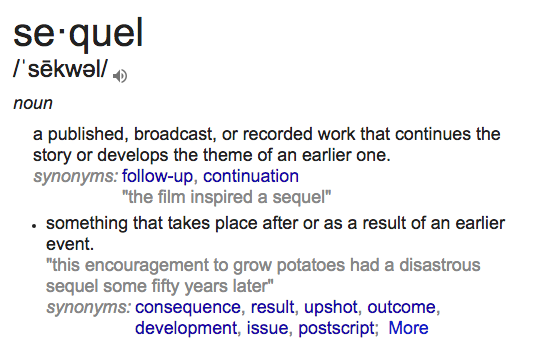Rosina Lippi's Blog, page 14
September 16, 2015
Mathematician Update and Statutes of Limitation
 The Mathematician now has three honkin big screws pinning femur to pelvis on the left side. He spends one more night in the hospital and will be home tomorrow, once he’s completely comfortable with crutches and the negotiation of stairs. His spirits are alarmingly good. Opiates will do that, I guess.
The Mathematician now has three honkin big screws pinning femur to pelvis on the left side. He spends one more night in the hospital and will be home tomorrow, once he’s completely comfortable with crutches and the negotiation of stairs. His spirits are alarmingly good. Opiates will do that, I guess.
Here is one of the best Mathematician stories, ever. I am telling it now because (1) the statute of limitations expired long ago and (2) it provides some perspective on a guy who would walk ten miles on a broken hip.
The Mathematician and I shared a suite of rooms in the Princeton graduate college dorms one summer. We were getting ready to move to a place off campus, and all our stuff was in boxes, piled up to the ceiling.
On the morning in question I took off to work on my dissertation in the computer lab on the third floor in the East Pyne Building.1 So there I am, typing away on a tiny screen, amber letters onto a black background, when the Mathematician comes flying into the room, out of breath. Fortunately there was nobody else in the room at the time, because he flings himself down next to me and says I don’t want you to be mad at me.
Interesting start to the conversation.
This is what happened, he tells me. Somebody knocked on the dorm room door. Nothing good ever comes of answering a knock at the door, because the fire inspectors stood there looking serious. Now, he believed there was nothing to worry about — we had no coffee makers or toasters or anything that produced heat — so he let them in.
These two inspector types have a quick look around the two rooms and a bath, and they’re about to leave when one them scans the tower of packed boxes. He points to one of them near the top and asks the question. Is that a toaster oven box?
Um, yes, says the Mathematician. But it’s never been open. You can see the seal is still intact. It’s just in transit and will be out of here tomorrow.
Never mind that, sez the inspector. You’re in violation. We’re taking it with us. You’ll get a notice about a hearing and a fine.
Here’s the thing: the Mathematician has both a keen sense of justice, and a temper. They left, and he jumped onto his bike and took off in pursuit of the inspectors in their van. He followed them all over campus until they got to the security building, parked, and went in.
Now he leaps to take advantage of the opportunity, opens the van, digs through piles of tea kettles and hot plates, grabs the toaster oven box — and this is not a small box — tucks it under one arm, and pedals away at high speed.
Fast forward to me listening to this in the computer lab.
Me: Um, you stole the toaster oven out of the van.
Him: No. I liberated your property from men who had seized it under false pretenses.
Me: And what did you do with it?
Him: It’s in a safe place.
Me:
Him: It’s in my office in the math department.
Me:
Him: Nobody saw me taking it into the building.
Me:
Him: I’m pretty sure.
Me: They could deport you.
Him:
Fast forward to the day the notice arrives inviting me to visit the security office to be interviewed about my sins. I sit down across from the director of security trying to look calm.
Security Guy: This is a fairly unusual situation. Inspectors seized a toaster oven from your rooms at the graduate college a few days ago, but it disappeared from the van that same morning.
Me: Oh?
Security Guy: Yes. The inspectors mentioned that there was a young man in your rooms when they took the toaster oven.
Me: Oh?
SG: A tall guy, brown hair, brown eyes. They believed he may have followed them here and stolen the toaster oven out of the van.
Me:
SG: Who was that person?
Me: I’m not sure I know.
SG: He had an English accent.
Me:
SG: You don’t know who was in your rooms when the inspectors came by?
Me: It wasn’t me, I know that much.
SG: You don’t have a name for me.
Me: I do not.
SG:
SG:
SG: Okay. Well, we will reimburse you for the cost of the toaster oven, of course. How much did it cost?
Me: Do I still have to pay the $50 fine?
SG: Of course.
Me: The toaster oven was $50.
SG: Then I think we’re finished here.
———
See? Persistant. Unflinching. Anxiety-inducing.
Note: this is long before anybody had a computer of their own, and the computers were the kind you hooked up to a mainframe by way of a telephone handset you forced into rubber cups on a big modem. And you could input only one line of text at a time. It makes me laugh to think about it. Shortly thereafter the computer were upgraded and we got software. I wrote my doctoral dissertation with WordPerfect 1.2. ↩
Tweet
The post Mathematician Update and Statutes of Limitation appeared first on storytelling.

September 15, 2015
GIlded Hour Q&A Page Updated
 Some questions came in, and I’m answering them one by one on the page you may not want to look at if you haven’t read The Gilded Hour. First question answered here.
Some questions came in, and I’m answering them one by one on the page you may not want to look at if you haven’t read The Gilded Hour. First question answered here.
Tweet
The post GIlded Hour Q&A Page Updated appeared first on storytelling.

We have a Winner in the Favorite Couples Giveaway
Thanks to everybody who participated. The poll was a lot of fun for me, I think because it gives me a sense of how people feel about the Wilderness series as a whole, and how Jack and Anna are seen at this early stage. And I was thrilled to see some other couples pop up, as well.
In a random drawing Pilar has won the bundle of books attached to the post Favorite Couples. Her comment:
I went with Elizabeth and Nathaniel. I just started rereading the series (for the 100th+ time) and the early stages of their relationship are just so beautiful and full of hope. I love them.
(I would love to know the love story of Curiosity and Galileo. Courtship and marriage as slaves. Developing who they are as free people. Powerful stuff there!)
Interesting idea. It would be tricky, but it’s still interesting. Pilar, please get in touch by email so I can arrange to get these books to you.
Tweet
The post We have a Winner in the Favorite Couples Giveaway appeared first on storytelling.

September 14, 2015
In Which the Mathematician Fractures his hip
 Yesterday evening the Mathematician was tooling around logging roads on Chuckanut Mountain, when his mountain bike hit a rock and dumped him, really, really hard, on his left hip. In true Mathematician fashion, he walked home. Took him about forty minutes.
Yesterday evening the Mathematician was tooling around logging roads on Chuckanut Mountain, when his mountain bike hit a rock and dumped him, really, really hard, on his left hip. In true Mathematician fashion, he walked home. Took him about forty minutes.
At the ER they said, wow, that’s a great hematoma. It will go away on its own, but let’s get a film, first.
Then they said, wow, broken hip. Didn’t see that coming.
It’s the neck of the femur, to be exact. And he walked home on that. So sometime today he’s headed into surgery. I won’t be around much, but I’ll post when I can with updates.
Tweet
The post In Which the Mathematician Fractures his hip appeared first on storytelling.

September 12, 2015
I’m home again

The road home
… But it will take me a day at least to get back to normal. Lots of questions have piled up, and I’ll start answering them tomorrow.
Tweet

September 8, 2015
on the road, briefly: upcoming readings
 I leave early tomorrow to read at bookstores in Oakland, Portland and Bellevue (details below) so you won’t see much of me online until the weekend.
I leave early tomorrow to read at bookstores in Oakland, Portland and Bellevue (details below) so you won’t see much of me online until the weekend.
In case you are wondering: I plan to close the current contest next Monday,
Wednesday, September 9, 2015
7:00 PM A GREAT GOOD PLACE FOR BOOKS A GREAT GOOD PLACE, LLC
6120 LA SALLE AVE
OAKLAND CA 94611-2802
Thursday, September 10, 2015
7:00 PM POWELL’S BOOKS
3415 SW CEDAR HILLS BLVD
BEAVERTON OR 97005-1337
Friday, September 11, 2015
7:00 PM UNIVERSITY BOOKSTORE
990 102ND AVE NE
BELLEVUE WA 98004-4196
Tweet

September 6, 2015
Story or Plot?
 Note: This is a reworking of an earlier post. I am making an effort (slowly) to gather all the posts about craft into a series.
Note: This is a reworking of an earlier post. I am making an effort (slowly) to gather all the posts about craft into a series.
The distinction between story and plot is a deceptively simple one.
Story: what happened
Plot: the artful rearrangement of what happened in a way that keeps your readers engaged.
A police report is a story told as a series of facts, in chronological order:
August 29 2008. At approximately 10:16am Officer Rodriquez and I were dispatched to the site of an accident on northbound State Route 12, approximately 500 yards north of Exit 15. Witness J.M. Corrigan had called 911 and was still at the site with his passenger, Maria Corrigan, of Tyler. The witness stated he had been travelling behind a 2004 Ford Explorer when that vehicle suddenly veered sharply to the right, left the highway, broke through the guardrail, hit the cement barrier, flipped end-over-end and then plunged over the precipice falling approximately 200 feet. While the witnesses did not see the impact, they heard it clearly.
Witness JMC stated he had been travelling at about 70 mph, as was the accident vehicle. On examination and photographing of the scene we discovered no skid marks. Witnesses JMC and MC both stated unequivocally that the vehicle’s brake lights never flashed.
Multiple fire departments were at the impact site at the bottom of the cliff. The fire had been put out by the time we reached them. Two victims released to the coroner at approximately 11:45 am. No identifying documents survived the fire. The wreckage is still being processed. The case has been handed over to Detective Ann Uribe.
These are the facts, and they are singularly unsatisfying. Was this a mechanical malfunction, or something more sinister? Detective Uribe’s report will not directly address this questions. It will simply provide more facts and raise further questions.
The victims have been identified as Georgia Jackson, age 34 and her daughter Milly, age 3.
Forensics report no immediate evidence of mechanical failure. Preliminary findings from the coroner indicate no alcohol or drugs in the driver’s system. The mother’s driving record was clean. No criminal history. No history of psychiatric illness. The driver was a pediatric nurse at Stanley Memory Hospital. No overt hostilities with coworkers.
Married to Robert Jackson, a pediatrician. The marriage was, by all reports, a functional one without conflict or financial difficulties. One son survives, James, aged six.
Robert Jackson has no document history of drug abuse or any other compulsive behavior. Both father and son were visiting with Robert Jackson’s sister Rayanne and her family in Springfield, and had been there for three days at the time of the accident.
Six weeks ago Milly Jackson was diagnosed with Acute Lymphoblastic Leukemia. According to the doctor treating her, she was responding well to treatment and her prognosis was very good. Interviews with family members, coworkers and friends indicate that there were no overt suicidal gestures. We have been unable to contact the driver’s mother, who is traveling in South America. An interview with her might provide more insight into her daughter’s state of mind.
There are some strong indications here of what might have happened, but we only have part of the story. And still, the facts you do have, the things you know add up to something that won’t let go. You want to know what happened, and why Georgia and her daughter died.
Every novelist will approach this differently, but here’s a method that has worked well for me in the past. My experience is that old-fashioned index cards are the best way to proceed. On each card I enter one fact about Georgia’s life based on what I know already. I lay out the cards in chronological order, and consider. What other events in Georgia’s life are important? As I work, facts and scenes, bits of dialog come to me. Each goes on a card, until I have a chronological accounting of major facts in her life:
1. Georgia Adams is born into a middle class family in a small town.
2. When she is three, her younger brother Michael is born.
3. In grade school she is praised for her meticulous, careful ways.
4. At age seven, her brother dies of leukemia.
5. She gets through high school and nursing school, still careful and thorough in all her work.
6. As a pediatric nurse she is fiercely protective of her charges, who love her. However, she never manages to make a connection to parents.
7. She marries a pediatrician she works with, someone she admires for his skill and perceptive way with children.
8. They have two kids, a boy named James and three years later, a daughter they call Milly.
9. At age three, Milly is diagnosed with leukemia.
10. On a cold February morning, Emma takes her daughter to the hospital for a chemotherapy treatment and everything goes as expected.
11. On the way home, Georgia purposefully drives the car off a cliff.
 Now you’ve got something – but it’s still only in its infant stages. We know the facts, but it’s all very clinical. We don’t have a plot. This is where you start shuffling your index cards, because the truth is, you could start telling this story anywhere. As the characters take on form, possibilities suggest themselves:
Now you’ve got something – but it’s still only in its infant stages. We know the facts, but it’s all very clinical. We don’t have a plot. This is where you start shuffling your index cards, because the truth is, you could start telling this story anywhere. As the characters take on form, possibilities suggest themselves:
Card #6: start with a scene in which Georgia is being peppered with questions by the oblivious and disruptive parents of a sick kid, and she comes close to losing her temper – but doesn’t. She never does.
Card #11: Officer Rodriquez tells his mother the story of the accident. He’s only been on the job for three months, and he’s finding it difficult to cope with such a tragedy.
Card #3: Georgia wins a city-wide spelling be because she is the only fifth grader who can spell intravenous. Her parents are absent.
Card #11: We experience the funeral from Paul’s perspective, or his father’s.
Card #7: From Georgia’s own POV we walk through the house she and her husband are thinking of buying when they are newly married. In her mind she keeps comparing it to her childhood home.
Card #11: Detective Uribe interviews Georgia’s husband Paul.
There are dozens and dozens of possible starting points. Any of them could work, but only one will work best for you.
Column written for and first appearing at WriterUnboxed
You’re wondering why you can’t tell the story from beginning to end. Of course you could do that, but most authors can’t afford to take the chance. You’ve got maybe two pages to hook your reader. You might be able to do that with beautiful prose about Georgia’s childhood home, her mother’s diffidence about having children, the stunted apple tree outside the kitchen window. There is one genre that values prose and imagery and characterization above plot. If you’re hoping to catch the interest of the lit-criterati, that stunted apple tree might be the perfect place to start.
On the other hand, most readers don’t think of plot as a four letter word. They don’t think of it as a word at all. They want a compelling story, and a reason to turn the page. The trick is, finding that starting point.
The index card approach works well for me, because it makes me really think. Once I find the right place to start, I may never refer to my index cards again. Or if I do, I might see how the story evolved in a different direction than I had anticipated.
Best of all, it gives me a way to watch Georgia grow up and turn into the woman who drives over that cliff with her three year old daughter strapped into her car seat. Because I understand how she got there, I can, if I do my job right, make you see it too.
Tweet

September 5, 2015
Favorite Couples & Yet Another Giveaway
 First, a poll. The list that follows is of couples whose stories are told in nine of my ten novels (I’ve left Homestead out, as the story arcs are so short). So the novels covered are the six in the Wilderness series, Tied to the Tracks, The Pajama Girls of Lambert Square, (these last two published under Rosina Lippi) and The Gilded Hour. You may not have read some of these, and that’s fine, you can still answer the poll and get in on the giveaway.
First, a poll. The list that follows is of couples whose stories are told in nine of my ten novels (I’ve left Homestead out, as the story arcs are so short). So the novels covered are the six in the Wilderness series, Tied to the Tracks, The Pajama Girls of Lambert Square, (these last two published under Rosina Lippi) and The Gilded Hour. You may not have read some of these, and that’s fine, you can still answer the poll and get in on the giveaway.
Question: which of these couples would you call your favorites? You can pick up to two couples.
Note: There is a poll embedded within this post, please visit the site to participate in this post's poll.
To enter the giveaway you need to leave a comment, so please tell me why your favorite couple is your favorite couple.
Or, if you’d rather, you can pick one of these:
Blue-Jay & Susanna Mayfair
Birdie & Henry Savard
… Then tell me why this couple should have a whole book focusing on their story. I can’t promise I’ll write that novel, please note.
If a discussion starts, any comment you make will count toward the drawing. So you can have your name in the hat once, or multiple times.
The prize:
One copy of The Gilded Hour (audiobook download, ebook or hardcover copy, your choice) AND Tied to the Tracks and The Pajama Girls of Lambert Square (Kindle or trade paper editions). So three of my novels.
If you’ve recently won something in a drawing, you can certainly join in the discussion but you won’t be eligible to win this time.
Go forth and opine. And have some fun with it please.
Tweet

September 3, 2015
The things that slip by you, pre-publication
When I’m waiting for a novel to hit its publication date, I always anticipate criticism. This is a hold over from academia, where it’s important to consider flaws or counterarguments while you’re putting a paper together. Anticipating criticism is the first step toward either avoiding it or preparing a response.
Writing fiction is different, of course, but I still try to anticipate where I might alienate or lose readers. For The Gilded Hour my concerns were pretty straight forward: it’s a long novel, and some people just don’t like long novels. For whatever reason (something in the individual’s style, or about the novel, or both) they have trouble staying focused.
There are also some topics which are controversial and highly emotive. I won’t be surprised if I get comments or reviews that find these storylines disturbing or even offensive. I’m prepared for that possibility. I don’t have rationalizations or excuses to offer — I wrote the story I needed to write — but I won’t be shocked to hear that kind of criticism.
There are always criticisms about anachronisms. This kind of criticism I consider closely and I will do some fact checking. However, if the reader finds that the main characters are too contemporary for their time, that I leave alone. If you have to explain something you did in a novel, you didn’t write it well enough. Or your reader wasn’t paying attention. Either way, it’s not worth the effort to try to resolve the confusion.
And there’s the certainty that some readers just won’t be interested. I myself find it impossible to stay focused on cyber-crime novels. That’s about me, not about the novel.
Just after a novel comes out sometimes criticisms pop up that take me by surprise. Here’s what is happening now with The Gilded Hour:
Some readers get to the end of the novel and are irritated because storylines aren’t resolved. Who was responsible for X? What happened with Y? If there were a sequel, then maybe they could live with these questions.
This is the question (is there a sequel?) nobody anticipated. I didn’t, my editors didn’t. Nobody. It should have been made clear at the end of the novel: Sara Donati is hard at work on the sequel to The Gilded Hour.
Alas, that didn’t happen. People familiar with my work would probably assume there is a sequel, but other people will not. As is the case with one of the reviews that shows up both on Amazon and Goodreads:
Way too many unresolved storylines. Unless there is a sequel, there are way too many unresolved subjects in this book. Given that the book is 741 pages-counting the author’s notes-there was certainly enough time to address one or more of the above subjects.
This same review gets some basic facts wrong and includes spoilers that aren’t tagged, but I am in fact thankful that the reviewer was so clear about what bothered him/her: the lack of clarity about the unresolved storylines and a sequel.
I just don’t know what I can do about it.
Tweet

September 1, 2015
Last winner in the big big giveaway
All the prizes have been claimed, and congratulations to the winners. Thanks to everyone for participating and helping to get the word on The Gilded Hour out there for people to see.
Irene Knight a signed first printing edition of The Gilded Hour
Petzi. The Gilded Hour unabridged audiobook
Seona a new Kindle Paperwhite with three of my favorite novels on it
Lori M. one coupon entitling the holder to an evaluation of a twenty-page double-spaced fiction manuscript.
Kim T. a copy of the 20th anniversary collector’s edition of Outlander, signed by Diana Gabaldon
Tweet





